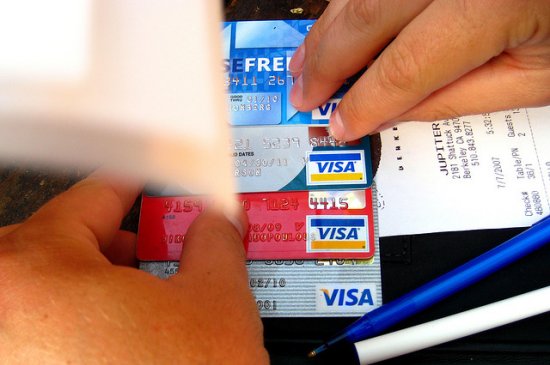
#1 Lower your credit score even if you pay on time
The best strategy for credit cards is to use 30% or less of your available credit each month and pay it off in full each and every month. You can do this by charging gas or groceries and then paying it off promptly. If, however, you keep a balance of more than this or, worse yet, max your card out and then pay just the minimum balance, your credit score will drop even if you make those payments promptly. The credit score calculation is designed to reward you for having credit, using it responsibly and paying on time.
#2 Late fees drive up balances if not paid on time
If you are even a day late on your payment, many credit cards slap you with a significant late fee of $20-$50. If you are already at or near your credit limit, this can put you over the edge. This can greatly increase the amount of your monthly payment and, if it's ongoing, can run you $240-$600 a year more in fees alone and when interest is factored in can cost you an extra thousand a year in increased interest – or more.
#3 Over-limit fees drive up balances
Sometimes credit card companies will let you charge beyond your credit limit but then will assess you a significant fee for doing so. Over-limit fees also run $20-$50. Even if you respect your limits for charges, if you run late on a payment and are assessed a fee, this can push you beyond the limit resulting in an over-limit fee. These charges tend to pile up.
For example, if you have a $500 limit and are at $490 them make a payment late and are hit with a $30 late fee, that puts you at $520 – in excess of your limit. Then you'll be assessed the over-limit fee of $30 (for example) which pushes you to $550. This means you'll need to pay your regular payment plus that $50 to get back under your minimum. If you don't get it down to under the minimum, you can get hit with this fee every month and if you're late, that one as well. This can spiral into an unmanageable balance quickly.
#4 Penalty interest rates
You may have scored a great interest rate when you first got your credit card – most consumers average about 11%-12% interest on their cards – but that doesn't mean it will stay reasonable. Even one late payment or one time going over your credit limit can throw you into what's known as a “penalty interest rate.” This is in the fine print of your credit card agreement which, if you're like most people, you haven't read.
Most credit card agreements are printed in such a small font you likely couldn't read it without a magnifying glass, even if you wanted to. Buried in many card agreements is the caveat that if you violate the terms of the agreement, your interest rate can be increased immediately. The average penalty interest rate is about 29% but if you already have a high interest card, the penalty interest may be significantly more.
